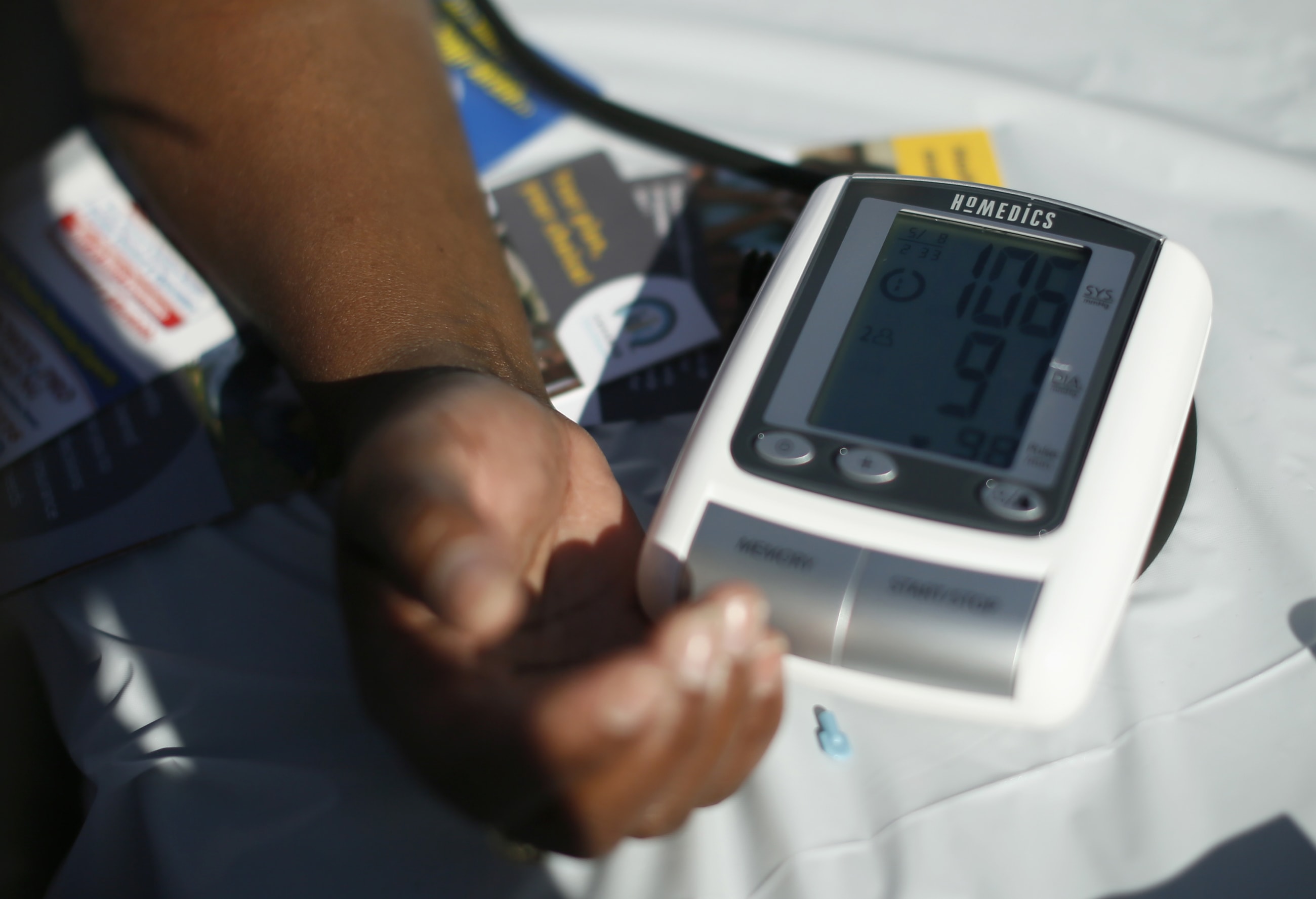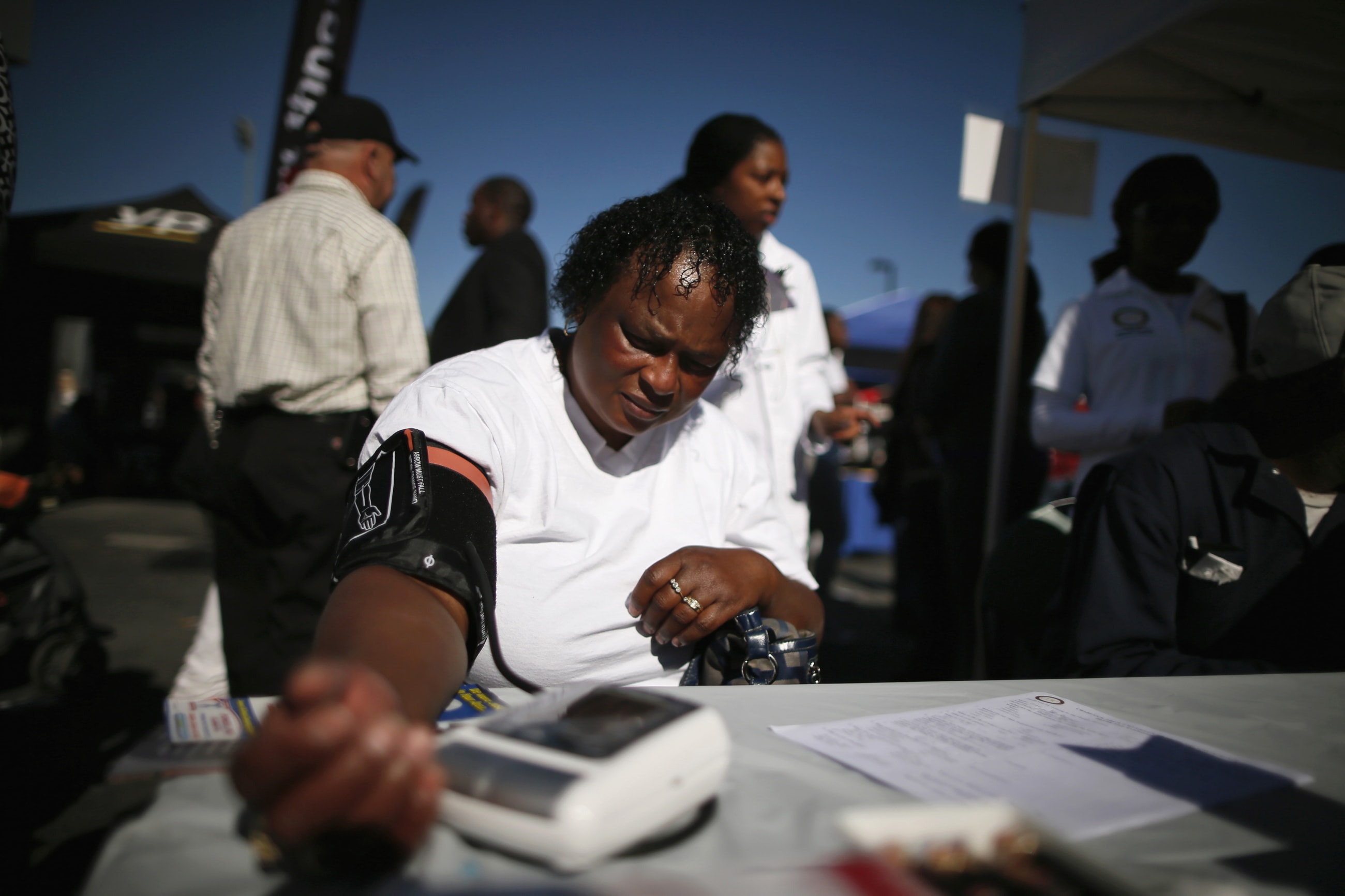Hypertension, or high blood pressure, affects 1 in 4 adults worldwide. In 2023, the condition contributed to 664,000 deaths in the United States. However, hypertension does not affect all people equally. In the United States, about 58% of African Americans have high blood pressure versus only 49% of white Americans.
In a new book, Why Black People Die Sooner: What Medicine Gets Wrong About Race and How to Fix It, Joseph L. Graves Jr., a biology professor at North Carolina Agricultural and Technical State University, interprets the gap in life expectancy between Black and white Americans.
The second chapter, titled "There Is No Slavery Gene: Debunking the Myths of Hypertension," explains how, historically, medical literature has explained the disproportionate rates of high blood pressure among African Americans as a biological trait. This assumption, however, is false. Graves peels back the medical misconceptions that cultivated the belief that socially defined race can dictate disease prevalence.
Think Global Health spoke with Graves, who is also a fellow of the Council of the American Association for the Advancement of Science, about how medical myths and structural racism in medicine have influenced the burden of hypertension on African Americans. He calls on the medical field to remove deep-rooted racist misconceptions to ensure that all people can live long and healthy lives.
The interview was lightly edited for clarity and brevity.
□ □ □ □ □ □ □ □ □ □ □ □ □ □ □
Think Global Health: Why did you decide to devote a chapter of your book to hypertension?
Joseph L. Graves Jr.: The myth of the genetic innateness of hypertension in persons of African descent has existed in the medical literature for a long time. The overall purpose of the book is to dismantle these long-standing misconceptions about human biological variation associated with persons of African descent and disease. And so I took on a number of those misconceptions. Hypertension was one of the ones that definitely needed unpacking.
Think Global Health: Historically, what were the main reasons people believed that African Americans were predisposed to hypertension?
Graves: This begins with the mythology that developed around the transatlantic slave trade. An assumption was made about the lack of access to salt in West and Central African populations. It was supposed that, during the transatlantic voyage, one of the major causes of death was heat exhaustion as a result of the inability of individuals to retain salt in their bodies due to the extreme heat. Then, once arriving in the [New World], being exposed to the conditions of chattel slavery in the subtropical environments of the Caribbean, the southern portions of what is today the United States, South America, and Brazil, led to a predisposition: that retaining salt in the tissues was a way to survive under these conditions.
Unpacking the myth begins with first exploding the idea that Central and West Africans didn't have access to salt. That's absolutely false. An active salt trade on the African continent came from the coastal regions into the interior. Most individuals had adequate capacity to have salt in their diets; there was no inability to metabolize salt resulting in an absence of salt supplies.
Then of course we get to this question of chattel slavery conditions in the [Americas]. But you have tropical people [Africans] moving into tropical and subtropical regions, meaning those people, because they evolved in those regions, had adaptations to deal with the temperatures in a way that west Europeans did not. So, the colonizers and the enslavers who came to the same regions wouldn't have had the same heat tolerance mechanisms of people who evolved in tropics. But we never heard an argument being developed about the incapacity of west, central, and north Europeans to deal with subtropical and tropical environs, and that, in fact, they were the ones that should have been predisposed to hypertension.
If we start with genetic predispositions, then we get the exact opposite prediction of what is observed
Joseph L. Graves Jr.
Think Global Health: Can you explain what a predictor of hypertension is, and which ones are better predictors than socially defined races?
Graves: An individual's genetic composition is always going to be a predictor of possible disease predisposition, but genetic variation and socially defined race do not match each other.
When I looked at the genetic variance in European Americans and African Americans that are associated with predisposition of hypertension, it turns out the European Americans have a higher frequency of the genes that would predispose them, not African Americans. Therefore, we should predict, on genetic traits alone, higher rates of hypertension in European Americans than in African Americans, yet data shows the opposite.
The other indicators of an individual's likelihood of having a given disease are the environmental conditions where they live. It's difficult to know what those are for hypertension, but one of the most obvious things would be diet, particularly foods that are high in salt content and processed foods, which can cause problems like hypertensions, metabolic syndrome and type 2 diabetes.
The point that I'm making in this chapter is that if we start with genetic predispositions, then we get the exact opposite prediction of what is observed.
Think Global Health: What does the global burden of hypertension tell us about who can develop the condition? How does it help debunk the idea of a higher risk dependent on socially defined race?
Graves: If we look across the African continent, we do not see the patterns of hypertension that we see in the Western Hemisphere. In West and Central Africa, hypertension rates are much lower than those we see in people of African descent in the Western Hemisphere. In East Africa, they're even lower still. So, if you were making the argument for a racialized component to hypertension, the data on the African continent works against it. We see the highest rates of hypertension in people in the African diaspora in the Caribbean and North America.
We therefore can't count this disease as a "racial disease." It is directly associated with the environmental conditions where people live, which predispose people of African descent in the Western Hemisphere to higher rates of hypertension.
In addition, many European and Middle Eastern populations would be anthropologically classified as Caucasian but show higher rates of hypertension than we see in persons of African descent. So once again, the international pattern of hypertension does not support the idea that hypertension is associated with a biological race, which humans don't have.
Think Global Health: What is the importance of understanding how environmental factors and structural racism affect hypertension prevalence in underrepresented groups?
Graves: I started writing on the question of how structural racism impacts health back in the early 1990s. In my second book, The Race Myth, I had a chapter titled "America Is Enough to Make You Sick," in which I discuss the cumulative impacts of structural racism on an individual once they are born, how that predisposes them to a variety of diseases, and how it is more predictive of disease than an individual's genotype.
This also leads us to the question of how we deal with these burdens of disease in racialized communities. You could approach it by just trying to design drugs that deal with the effects of racism. Now, if you were to do that, you undoubtedly would make a lot of money. But, more efficacious to me is, rather than trying to design drugs to deal with this burden of continual stress formed by racist societies, to address the root cause, which is racism.
There is absolutely no need for us to maintain patterns of injustice in our society, the burden of which I discuss in the book in terms of the number of people who die prematurely because of their continual exposure to injustice. The nation would advance its health profile by addressing the systemic institutions that are causing these problems. It's something I think every American will get behind, because at the root of what we claim we are about is "justice for all." So why don't we do that? Why don't we produce systems that do not discriminate against people based on their perceived socially defined race or ancestry?

This is not a hard thing to do. It's simply a question of political will to address these institutions that continue to harm people. My answer is not to design drugs to address racism. My answer is simple: Eliminate racism. Give every American the opportunity to live up to their genetic potential.
Think Global Health: What are the harms of medical education reinforcing the idea that genetics and race are behind conditions like hypertension?
Graves: At the beginning of the book, I start with the case of a slave ship and how slavers packed more human beings into the hull of that ship than any ship could have possibly handled and thus more than half of the cargo died in transportation to the New World. It was these conditions that produced the belief system about human biological variation and the inferiority of African people. That is, these misconceptions did not infiltrate medicine. They started in medicine. What medicine in the United States failed to do was address them.
Even as science in other disciplines—such as biological anthropology, evolution, and genetics—learned about human biological variation, the medical profession was amazingly refractory to learning from other disciplines that its belief system was not evidence based. That is why in this book I spent a great deal of time on the work that I've been doing with other colleagues to address these misconceptions in major medical programs in the United States, as well as in licensing boards, and in high stakes tests for physicians. Misconceptions need to be addressed and removed. In so doing, we would bring American medicine up to the standards of modern science of human biological variation.
Think Global Health: What advice do you have for young people going into the health workforce? How can they effectively challenge the misconceptions within medicine to better serve underrepresented and historically disadvantaged populations?
Graves: It starts with them taking agency for their education, because once they get into these medical programs, they're going to hear a lot of these racial misconceptions repeated.
Now I want to be clear, there is a movement among physicians who are aware of how these misconceptions harm medical education, who are attempting to organize within the profession to help their fellow physicians learn that these things should not be taught to medical students.
It's going to be a combination of push and pull. Push on the part of the incoming medical students to be trained properly and pull by existing physicians who are aware.
Think Global Health: What efforts are addressingthese harmful misconceptions in medicine and medical education?
Graves: In the book, I talk about the work of my colleague, Dr. Andrea Deyrup at Duke University, who teaches a pathology class. She and her students produced a series of lectures and documents on these misconceptions that are integrated into their pathology course. I have a colleague at Wayne State University, Dr. Ijeoma Opara, who just hosted a conference on removing racial misconceptions from medicine. The work is ongoing, and individuals across the country are recognizing how these misconceptions or harming medical education and are working diligently on it.
However, we are still the minority. A great deal of work remains to be done. The new administration and its policies that are attacking the capacity to undertake research dealing with medical misconceptions, health disparities, and how structural racism affects health is making it more difficult for people to do such work. This needs to be addressed head on. Medicine says it's about evidence-based policies. And the evidence tells us that humans don't have biological races, and that much of the disease predisposition we see in modern societies are the results of social determinants of health, not genetic differences between subpopulations. If we're going to go on the basis of the evidence, then we're going to be doing medicine differently from the way it is currently being done. We cannot allow an administration that has taken a blind eye to scientific evidence to determine how we educate medical students and how we practice medicine.













